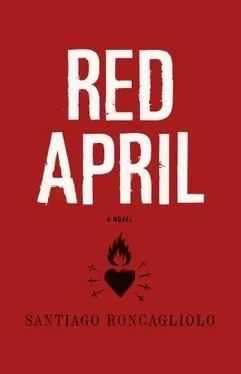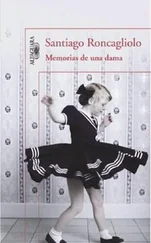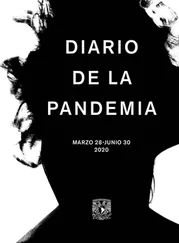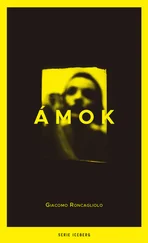Saturday, April 15 / Wednesday, April 19
Associate District Prosecutor Félix Chacaltana Saldívar welcomed in Saturday by dancing. He had not done that for a long time. Since he did not consider it appropriate to his state of mind, he tried to resist. But Edith insisted when she left work and took him to a concert of indigenous groups at a fairground.
In the middle of the field an enormous bonfire was shining, and around it hundreds of bodies were dancing, sometimes embracing, sometimes alone, moving to the rhythm of the folk music and drinking punch and beer. At first, the prosecutor refused to dance. Edith dragged him to the floor, but he felt rigid, incapable of moving a body that was good only for carrying out basic vital functions.
At a certain point, worn out by the crowd and the noise, he went to a food stand and asked for Ayacuchan chorizo and a glass of punch. The woman gave him a piece of fried spiced pork with hot ají peppers and vinegar. It was good. As he ate, he saw Edith, who had stayed with the group in the middle to dance. He wondered if what he was doing made sense. Edith was no more than twenty, she had been born at the same time as the war. And he felt old.
He drank a little punch. The taste of the milk and cinnamon with the effect of the pisco warmed his body. Now Edith was dancing close to the bonfire, her smile hidden at times by her hair. The prosecutor ordered another punch while the Gaitán Castro brothers came up on stage and people welcomed them with enthusiastic applause. Even in their happiest songs, what predominated was the Andean lament that their public loved. The prosecutor realized he was keeping time with his foot. He took a few steps forward.
Edith saw him approaching and gave him a smile. At times the mass of people hid her, because she was very short. Pushing his way through, and in a good humor after two glasses of punch, the prosecutor reached her side. He began moving his feet, trying to look like all the people around him. It was good to look like everyone else and disappear into the crowd, dissolve in it. Edith directed a smile at him and he did not know if it showed tenderness or mockery for how badly he danced. But he kept on. Now he had to move his arms, as if he were harvesting a crop, now his waist, and again his feet. It was difficult for him to do everything at the same time. As he made the attempt, Edith whirled around him, framed by the fire, moving her head and shoulders, laughing, with a laugh that to the prosecutor seemed as welcoming as a warm room in winter.
The next morning started out gray, but as noon approached, the sky began to clear. Prosecutor Chacaltana got up later than usual and hurried to greet his mother and open the windows in her room. He told her he had danced. He knew she was returning his smile from somewhere. Then he went out.
At the prefecture and at the market they were distributing yellow and green palms brought in from the province of La Mar in Ceja de Selva. The faithful walked through the city carrying their branch for Palm Sunday. At the Church of Pampa San Agustín they were preparing the procession of the Lord of the Vineyard, scheduled to go out that night, holding a cluster of grapes in his hand to guarantee fertility. The entire city was given over to the celebration.
The Associate District Prosecutor appeared at the Church of the Heart of Christ at approximately 11:35. In the priest's office, the stewards of the eight processions of the celebration were arguing with Father Quiroz because they wanted to modify their routes. Quiroz responded without restraining his indignation:
“We've been following the same route for almost five hundred years, and we're not going to change now so that they can stop at the hotels!”
“But that's where the tourists are, Father. The hotels will give more financial support to the processions if we pass in front of them …”
The stewards were prosperous merchants and professionals. In earlier years they had tended to be very devout, observant gentlemen, but since the end of the war they had demonstrated more interest in the hospitality industry than in the preservation of traditions. As he listened to their discussion from the waiting room, the prosecutor thought of an impresario from Huanta who had proposed the previous year that the celebration be extended to an entire Holy Month with different processions each day. He had calculated that this would multiply the influx of tourists. And money.
The stewards came out of the office visibly annoyed. The Associate District Prosecutor preferred to wait a moment before going into the office. When he finally did, Father Quiroz was preparing to go out.
“I hope this will be brief, Señor Prosecutor,” said the priest, without inviting him to sit down. “This is the most complicated week in the year.”
“I understand, Father.”
“How are things? Do you have another burned body to investigate?”
“No. Not a burned body. I have Justino Mayta Carazo. Do you remember him?”
The priest seemed to make a slight effort to remember as he looked inside his briefcase. He replied as he closed it:
“Ah, yes. What happened to that little thief? Did they find him?”
“Yes, but dead.” The priest froze. The prosecutor wondered if his words had not been too abrupt. “I mean … They found him on Acuchimay Hill, eaten by buzzards. It happened early Friday morning.”
The priest crossed himself. He seemed to whisper a few rapid words, perhaps some formula for those who rest eternally in peace. Or not. The prosecutor did not know how corpses rest.
“Was it an accident?” the priest asked.
“No.”
“Was it the same … the same as last time?”
“We think so.”
“Come with me.”
They went to the eating hall for the poor of the Church of the Heart of Christ, which was half a block away. The Associate District Prosecutor wondered if he would ever succeed in talking to Father Quiroz while they were sitting down. When they reached the eating hall, they found a long line of beggars sitting on the sidewalk in front of the door. The beggars immediately surrounded the priest, who avoided them with an amiable gesture that indicated broad experience of this kind. The prosecutor and the priest went inside, where a short dark nun was waiting anxiously for Quiroz's arrival.
“How are we, Sister?”
“We have a new donation of milk, Father, but it won't be enough. There are too many,” she added, pointing outside.
“We'll do what we can. Divide the servings in half, and when that's finished, then it's finished.”
“All right, Father.”
The nun hurried to give instructions in the kitchen and then returned to the door. She opened it. Dozens of beggars pushed their way in. Some had been disabled during the time of terrorism, others were simply campesinos who had come to the city for Holy Week but could not pay for food. They sat at four enormous tables. The nun, with two other sisters, served pieces of bread, glasses of milk, and a thick soup in deep bowls.
“Your killer seems like a very devout man,” the priest remarked, returning to the subject.
“What do you mean?”
“The burning … the buzzards. He seems to be trying to destroy the body so it can't be resurrected … if you'll permit me a mystic interpretation.”
“No … that possibility had not occurred to me.”
“Hmm. It's curious. We humans, Señor Prosecutor,” the priest began to expound, “are the only animals who have an awareness of death. The rest of God's creatures do not have a collective experience of death, or they have one that is extremely fleeting. Perhaps each cat or dog thinks it is immortal because it hasn't died. Do you follow me? But we know we will die and are obsessed with fighting death, which makes it have a disproportionate, often a crushing presence in our lives. Human beings have souls to the exact extent that we are conscious of our own deaths.”
Читать дальше












